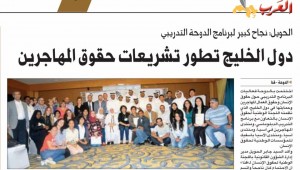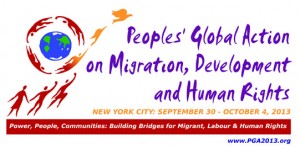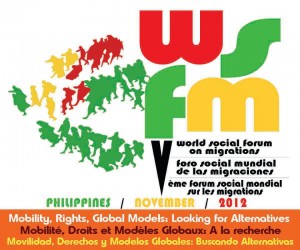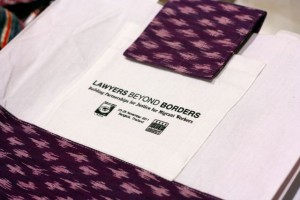7th Annual Meeting on Migration of Asian Parliamentarians
Category : Activities
 Migrant Forum in Asia (MFA), Friedrich‐Ebert‐Stiftung (FES), Office for Regional Cooperation in Asia, UN Women and the Committee on Overseas Workers Affairs (COWA) convened the 7th Meeting of the Asian Inter-Parliamentary Caucus on Labor Migration focusing on Gender-Sensitive Strategies for Migrant Workers, on 22-24 November 2013, in Bangkok, Thailand.
Migrant Forum in Asia (MFA), Friedrich‐Ebert‐Stiftung (FES), Office for Regional Cooperation in Asia, UN Women and the Committee on Overseas Workers Affairs (COWA) convened the 7th Meeting of the Asian Inter-Parliamentary Caucus on Labor Migration focusing on Gender-Sensitive Strategies for Migrant Workers, on 22-24 November 2013, in Bangkok, Thailand.
Since 2007, MFA and network partners, with the support of FES, have been facilitating a parliamentarians program aimed at identifying the role for parliamentarians on the issues of labor migration and migrants’ rights, enhancing participation of MPs in that role, and identifying key issue areas to take on. Past programs were organized in Manila (2007, 2012), Singapore (2008), Thailand (2009), Vietnam (2010), Cambodia (2011) and Manila (2012).The objective of this year’s Meeting of the Asian Inter‐Parliamentary Caucus on Labor Migration is among others to further the 2012 discussion of social protection from an ASEAN to an interregional focus through a gender-sensitive lens.
This year the program created an ‘Advisory Group’ for the Asian Inter-Parliamentary Caucus on Labour Migration. This group acted as a focal point for the caucus, with responsibilities such as coordinating with MFA to develop programs for future Caucus meetings and acting as a representative body for the Caucus in engaging with SAARC and ASEAN, among other responsibilities. The creation of the advisory group is meant to increase the visibility of parliamentarians in the Asia region. Moreover, it is an opportunity for effective policy advocacy, where MFA’s network of lawyers can work with the advisory group in identifying key issues of labour migration and migrants’ rights to tackle.




